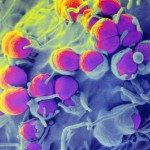Lien vers Pubmed [PMID] – 16170427
Sante Ment Que 2005;30(1):97-115
Various types of group interventions exist for people with severe mental disorders such as schziophrenia. The content and theoretical backgrounds vary according to the therapeutic goals as well as the clientele targeted. This article describes three group interventions : 1) one aiming at improving self-esteem, 2) one aiming at improving competence through stress management, and 3) one aiming at diminushing distress linked to psychotic symptoms with cognitive behavior therapy. Details on how to conduct these three group interventions, as well as their clinical and theoretical relevance for individuals with refractory psychosis will be described.

